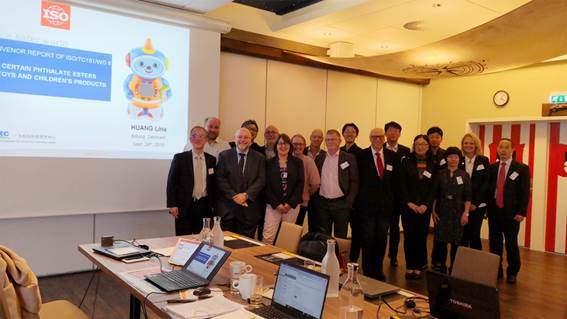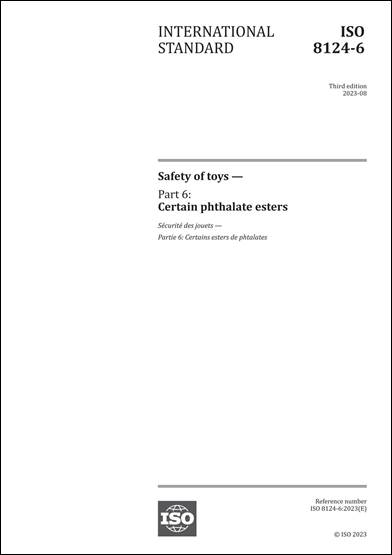Recently, the International Organization for Standardization (ISO) officially released the important international standard ISO 8124-6:2023 “Safety of toys — Part 6: Certain Phthalate Esters”. The standard was formulated by TC181/WG6 working group of the ISO Technical Committee of Safety of Toys. The working group is composed of 68 experts from 15 countries and regions, convened by Prof. Huang Lina from Quality and Standards Academy of Shenzhen Technology University (SZTU).

Prof. Huang Lina leads the ISO/TC181 working group of phthalate esters for toys. [Photo/Quality and Standards Academy]
The project was officially established on October 27, 2020, and completed on August 4, 2023. The ISO 8124-6:2023 released this time is the third important revision of the standard.

ISO 8124-6:2023 international standard [Photo/Quality and Standards Academy]
The issuance of this international standard is conducive to unify the toy plasticizer restrictions and testing worldwide, significantly reduce the cost of toy testing and safety certification, and promote the healthy development of the industry. It marks the transformation of China from a major toy manufacturing country to a powerful one.
Phthalate esters have long been widely used in plastic materials such as toys and children’s products, food packaging, personal care products, and medical products to enhance the processing performance of polyvinylchloride (PVC), etc. In recent years, people have gradually realized that this kind of substance will seriously affect the growth and development of children. Phthalate esters in toys and children’s products have been strictly controlled by law in China, Europe, the United States, Australia, Japan, South Korea, etc. China introduced the GB 6675.1 national standard for toys in 2014 and began to restrict the use of certain phthalate esters.
The release of this international standard showcased SZTU’s breakthrough progress in international standardization. SZTU will continue to strengthen standardization work, further enhance the international influence of Chinese standards, and contribute to participating in global governance and cooperation.
Drafted by Daisy(姚琦)/ International Cooperation & Student Affairs Office
Revised by Brian(郑斌)/ International Cooperation & Student Affairs Office
Edited by International Cooperation & Student Affairs Office
